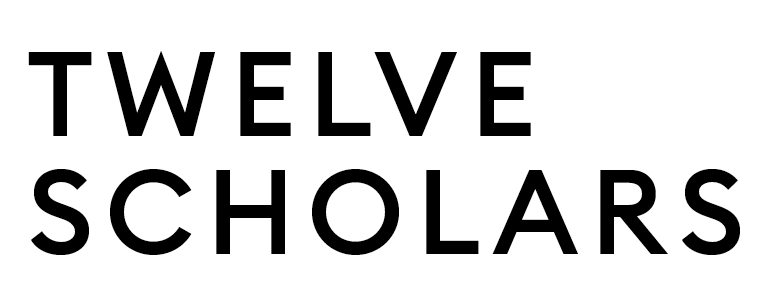A touch of Lightroom
How do you make a step change difference?
In photography, it’s common to use Photoshop and Lightroom to touch up photos. It’s something I taught myself. And it’s taken forever. Today those skills are second nature. And it’s the composition and storytelling that I’m working on.
This photo is my best attempt to summarise ‘The Essential Scholar’ in one shot—with post-production editing and the latest AI update in Photoshop.
Looking back, my photography skills have certainly improved. I just need to remember when it’s good enough to move on.
Website Revisited
Back to the drawing board this weekend—a work in progress. Thanks for your patience and feedback. A new look coming soon.
A Fresh Start
What will you do differently this month?
Every two months I start a new bullet journal. It’s a chance to start again. A blank page. A different perspective.
Although I’ve been doing this ritual for over 10 years. I wish I’d started sooner.
It’s an opportunity to review the past two months. And plan ahead. Determine what worked well. And what needs doing differently.
There has been tremendous change in technology over the past 10 years. But one thing that has remained (and will remain) constant. And that’s the tradition of starting a new bullet journal.
Silver Linings
A good friend of mine recently received shared some bad news—let’s call it a setback. Me too. I’ve just had a wonderful opportunity taken away.
One way to deal with setbacks is to consider all the silver linings. Think about all the lessons learned, the experience gained and the positives.
As a leader, it’s inevitable that you’ll face setbacks. It’s how you deal with it that counts.
The Heuristics of Getting Older
As we get older, poor health can affect our confidence and ability to do things. Whether it’s physical or mental, we need a simple way to stay sharp and in good health. But how?
A simple yardstick is to perform as many press ups as your age. This may not sound appealing, but hear me out—with the use of our EGSP Framework®.
Poor = unable to complete a set of press ups.
Satisfactory = reach double figures (this has been me everyday for the past year).
Good = as many as your age.
Excellent = more than your age.
It’s my brother’s birthday today. His goal is to complete 52 press ups. Whether or not he achieves this target immediately, the process will help him in so many other ways.
Expect a Special Delivery
What can you expect from Twelve Scholars?
When you join our Leadership Development Programme, not only do you gain instant access to our online tutorials, you’ll also receive two rather special parcels through the post.
The first parcel is a white box that contains your Leadership Playbook. This is your course curriculum, presented as a beautiful set of notes.
The second parcel is a ‘poster tube’. This contains your Leadership Compass—a tactile teaching tool that’ll guide you and your team.
A State of ‘Fast Flow’
Most mornings, I’ll walk/jog/run along my local river. Always keen to spot something in nature. Buds on the trees. Pregnant ducks. A heron. Deers hiding in the bushes. It works. I’ll always arrive home that bit more creative—and productive. Today, was all about the river.
I’ve noticed the river running high before. But today, it was flowing faster than I’ve ever seen. The volume was impressive. And it got me thinking. Creativity is like the water in the river. When the level is high, your juices run high. When the river runs dry, then so too do your ideas. A trickle at best.
But the ‘fast flow’ can cause havoc. Ducks search for a new feeding spot. The river bank gets eroded—tree roots are exposed. Rocks and stones underneath shift downstream. And localised flooding may happen.
And that’s a good metaphor for creativity. It’s messy. It’s not for everyone. But when the rain stops, and the level subsides, everything goes back to normal. But somehow, it’s different.
The Republic of Tea
“You don’t get hold of an idea. An idea gets hold of you.”
The latest addition to our leadership library has just arrived. It was highly recommended by David Hieatt (DO Lectures/Hiut Denim). Without hesitation, an order was placed.
The Republic of Tea is a book of real letters, faxed between Mel Ziegler and Patricia Ziegler, co-founders of Banana Republic, and their friend Bill Rosenzwieg. It chronicles the day-to-day breakthroughs and breakdowns of the creative process—inventing a product, developing a plan and structuring a business partnership.
Published in 1992, this gem of a book is now out of print. My hardback edition arrived in remarkably good condition. Can’t wait to sit down and enjoy—of course, with a pot of tea.
The Importance of Being Earnest
You know the feeling. You’ve been there before. Sometimes, you just need to knuckle down and get the job done.
Being earnest results from a sincere and intense conviction. A useful feeling when you're committed to the cause. A type of dedication that’s deep and diligent.
What’s the alternative? Well, you could argue it’s being half-hearted or apathetic about things. Not taking things seriously, and giving up far too easily. As always, you have a choice. (Or not).
Time Management on Teams
How often do you jump from one Teams call to the next. Constantly late. Sending your apologies. Unable to grab a moment—even for a cuppa?
Vince Lombardi was famous for his ‘Lombardi Time’ principle. ‘Always arrive 15 minutes early’ was his mantra. It was the backbone of his coaching success. Well, why don’t we start applying this to video calls.
In theory, it should be easier to apply online than in person. But it takes discipline. Discipline to not overcommit to too many meetings. Or too many meetings with the potential to overlap.
And so we need to structure our meetings better, keep an eye on the clock, and wrap up well before the scheduled end time. Don’t worry, I’m as guilty as the next person—but I’m getting better.
What are you doing to improve your online time management? Perhaps it’s time we create a code of conduct for online meetings?
Late for Hockey Practice
It’s the weekend. And my youngest nephew has hockey practice. It’s the same time, same place, every week. Only he doesn’t.
In any team sport it pays to be early. Let’s call it Lombardi time. Even for a 12-year old.
The advantages are plenty.
Less stress and a more relaxed start to the day (especially for his dad).
Meet with friends and coaches before practice.
A chance to warm up properly—and prepare for the session.
Be known as someone who is reliable, consistent and dependable.
Increase your chances of selection.
If only he could put down the Lego Minecraft, avoid Fortnite and pack his bags the night before.
If you’re wondering why you're not succeeding in business, then arriving early is a useful skill.
A Personal Manifesto
Examples of personal manifestos… from Deiter Rams to Do Lectures.
What would this look like for you, your team or your organisation?
Culture eats Projects
Even the best strategy isn’t guaranteed success. Why is this?
We learn time and time again that great strategies can be resisted by a strong culture. I’ve witnessed this myself. Even when armed with the best strategy—projects sometimes fail due to culture.
Culture can be a powerful thing. It can counteract and resist change—no matter how good the project is. To paraphrase Peter Drucker, “Culture eats projects for breakfast.”
Super Bowl 58
Will she or won’t she?
That’s the big question on everyone’s lips at this years’ NFL Super Bowl grand finale.
The Lombardi Rules
It’s Super Bowl LVIII across the pond this weekend. And the winner takes home the Vince Lombardi Trophy. But who’s Vince Lombardi?
Vince Lombardi was one of the world’s greatest coaches. As coach of the Green Bay Packers from 1959 to 1967, Lombardi too a ragtag group of players and moulded them into a championship team. The Packers won NFL championships in 1961, 1962 and 1965, as well as the first two Super Bowls in 1966 and 1967.
So much can be said about Lombardi’s leadership style and legacy—I’ll save that for another day. If you’re looking for an insider’s look at Lombardi’s extraordinary methods, then The Lombardi Rules is an excellent summary of his leadership model. (It’s also written by his son).
Consistently Inconsistent
Confession time.
I haven’t been as consistent as I’d have liked so far this year. From uploading weekly tutorials, recording our weekly podcast and posting daily blogs. It’s a far cry from where I want to be. And certainly an area for improvement. So what needs to change?
I could start by doing less. Lowering standards. Not making as many promises. But that isn’t me. So I need to find a system that allows me to be more consistent, without failing at the first hurdle or sight of overwhelm.
I don’t have the answer—yet. But I’m determined to find out.
Taking Responsibility
Leadership is taking responsibility for any given situation. Not just standing back, but proactively engaging with the situation.
Here’s a great quote I stumbled upon this week. (And it struck a chord.) It’s taken from the fabulous book, Changing Your Story, by Bill Beswick.
“Responsibility means doing what you’re supposed to do, when you’re supposed to do it. It means being where you’re supposed to be, when you’re supposed to be there. It means doing what you say you’re going to do, and doing right by yourself and by others.”
— Bill Belichick (NFL Coach)
Widely regarded as one of the great coaches of all time, Bill Belichick holds the record of most Super Bowl wins (six) all with the New England Patriots. So he definitely knows something about leadership.
Ps It’s the Super Bowl this Sunday... Kansas City Chiefs vs San Francisco 49ers.
Goals that shape us
How well do your goals change your actions?
If your goals aren’t making you think and act differently, you should question whether they’re the most appropriate goals. Instead, try bigger goals, try more meaningful goals, try goals that stop you in your tracks. For that’s how we should judge a goal. By how much it changes our actions in the present moment.
Visualising Waste
How can you get your message across more effectively?
I was listening to From Our Own Correspondent at the weekend (BBC Radio 4). Presented by Kate Adie, it features insight, wit and analysis from correspondents, journalists and writers from around the world. And this week was no exception. There were stories from France, Turkey, Cambodia, Canada and Chile. But one simple story stood out.
The correspondent detailed how rising bureaucracy is harming French farmers. (No surprise there). The farmers believe there are far too many rules. For example, farmers must set aside four percent of their land each year to help the environment and combat climate change. One farmer interviewed said this was costing his business the equivalent of 300,000 baguettes each year!
I thought this was brilliant. A French farmer visualising waste in terms of French produce. Something we could all do in our businesses.
Groundhog Day
What happens when life starts to repeat itself?
What happens when life starts to repeat itself? And what can you do about it?







